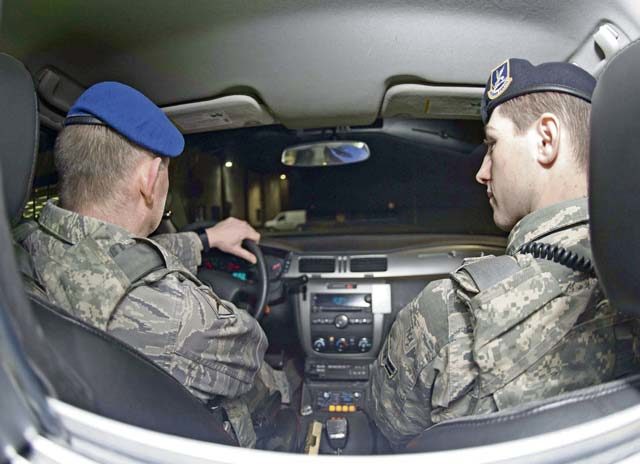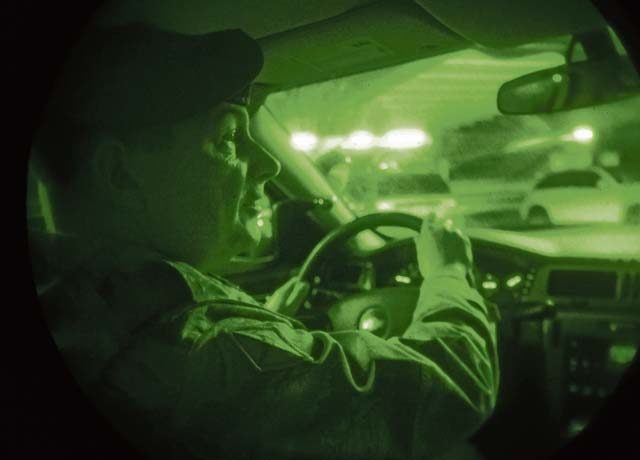
One can spot them at the large vehicle inspection gate or patrolling base, wearing Airman Battle Uniforms and blue berets. As members of the 86th Security Forces Squadron, they help keep Ramstein safe and work alongside Airmen as German civilians. Zivilpolizei, or Civilian Security Police, bring a wealth of experience to Ramstein’s law enforcement.
“We as Airmen come and go, but ZPs are here years and years,” said Airman 1st Class Daniel Regan, 86th SFS member. “They get to see short-term and long-term effects of changes and different policies.”
Regan is new to his career field, but he has a lot of experience to draw from.
“They mentor us as Airmen just getting here out of tech school, and they’re here to guide us,” Regan said. “The most valuable thing ZPs contribute to Ramstein is experience.”
The longest-standing ZP patrolman on Ramstein has been helping keep service members and their families safe for 28 years.
Marcus Mueller, 86th SFS patrolman, has been a ZP on Ramstein for 15 years, and a patrolman for 10. During that time, he’s handled a lot of situations. Mueller has done everything from handing out tickets, to training new Airmen, to recovering lost children and saving lives through emergency medical care.
Mueller explained that ZPs act as liaisons between German authorities and the Air Force.
“If an active duty patrolman comes here to Ramstein, he knows about the Uniform Code of Military Justice, but he doesn’t know German law,” Mueller explained.
ZPs can help with matters of German law, overcome language barriers, and coordinate with German police, or Polizei.

Regan said that the most valuable thing he’s learned from working with ZPs is to keep an open mind to learning, because ZPs will try to share as much law enforcement experience as possible.
“For example, there could be a situation as simple as approaching someone who didn’t stop at a stop sign,” Regan said. “I might want to just walk up to them and give them a ticket or a briefing, but the ZPs will think a lot deeper, like ‘Do they have a weapon on them? Are there drugs? Why did they run the stop sign?’ Not to mention, if you do have to apprehend someone, the ZPs are experts on the extensive paperwork that follows.”
Mueller said that Airmen influence ZPs as well.
“They keep us motivated,” Mueller said. “If you work on a base for 10, 20, or more years, that’s a long time. They come in and they’re fresh and they want to get out there. I love to train them because it’s always a new challenge, and challenges push you forward.”
ZPs have helped Regan understand more than just the job.
“I grew up on Rhode Island,” Regan said. “Coming from a very small place to the continent of Europe, working with the ZPs helped me acclimate to the culture of Germany and Europe in general. I hadn’t eaten döner until I met them.”
86th SFS Airmen and ZPs have each other’s backs, and they have good reasons to, Regan added.
“It’s teamwork,” he said. “Police in general, we’re a brotherhood. German, American, civilian, military — at the end of the day we’re coming together to accomplish a common goal, and that’s to keep everybody safe.”


